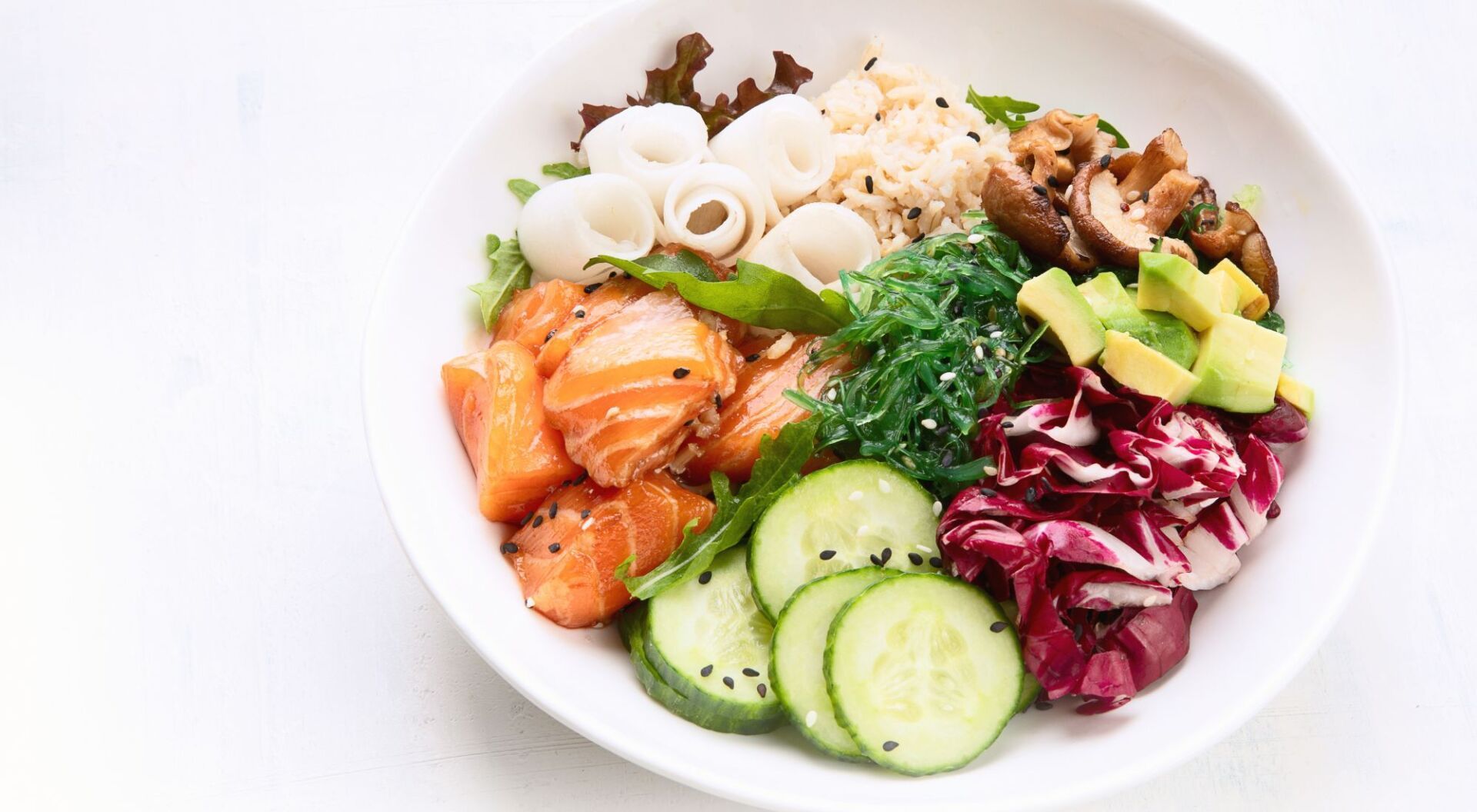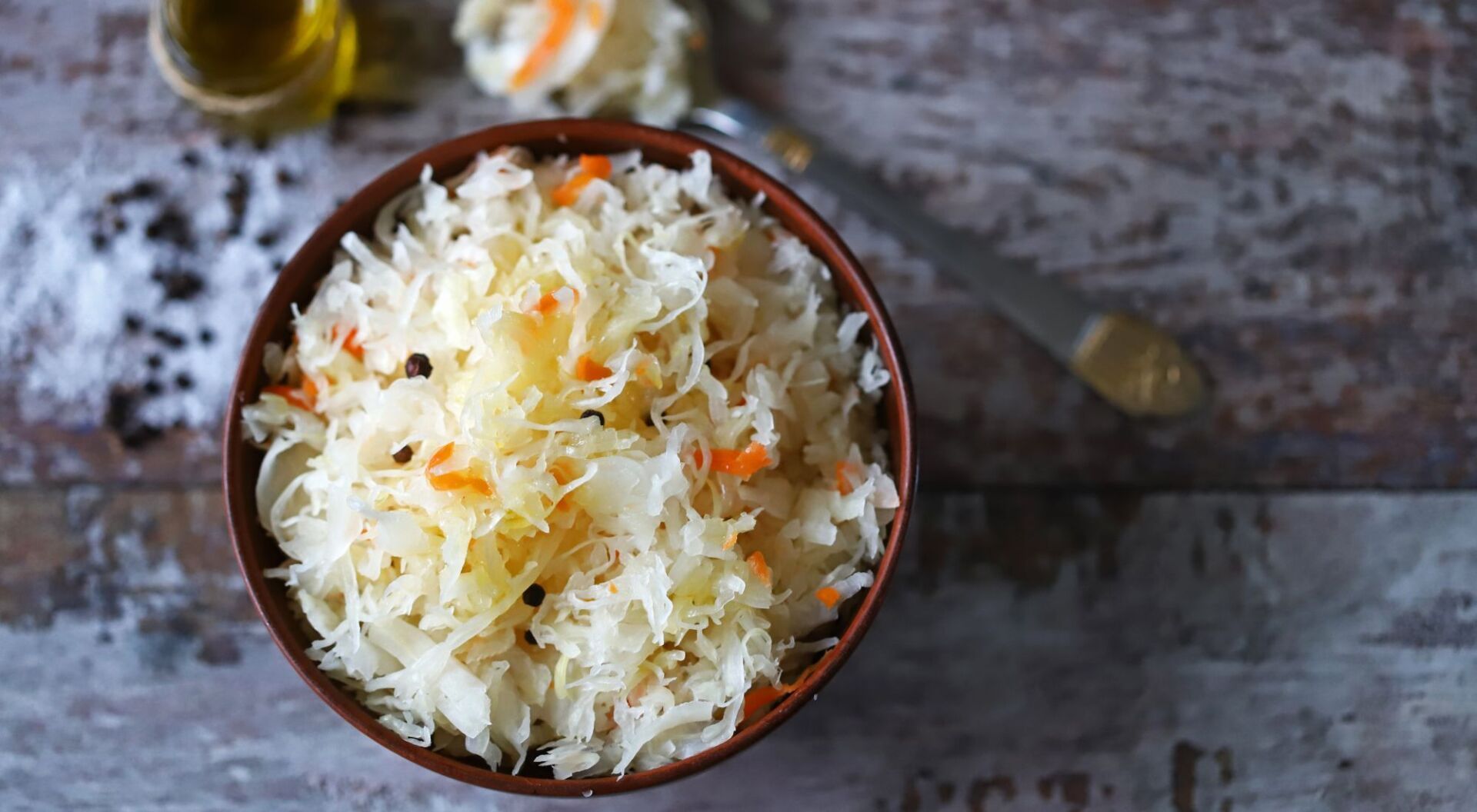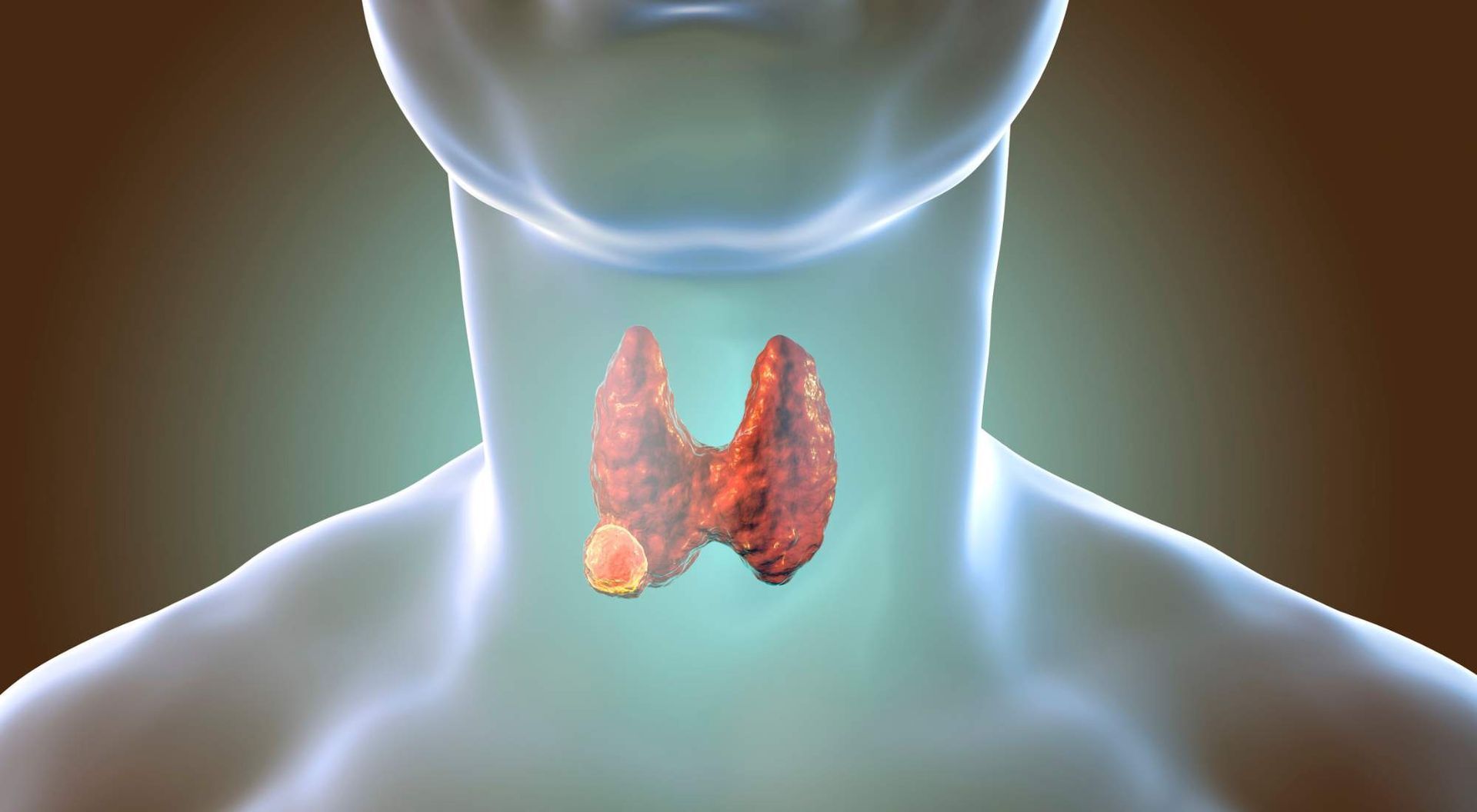Get Your Digestive System Back on Track With These Superfoods for Gut Health
"The content below is not intended to be a substitute for professional medical advice, diagnosis, or treatment. Always seek the advice of your physician or other qualified health provider with any questions you may have regarding a medical condition."
The number on the scale keeps increasing. You have an upset stomach every day. You are tossing and turning each night.
You are miserable and have no idea what’s going on with your body.
Have you ever considered your gut might be responsible? If not, it’s understandable. It can be difficult to wrap your mind around the fact that your gut health is responsible for many things in your body.
What's one of the most significant factors affecting your gut health? Food!
After reading this article, you will be able to confidently fill your grocery cart full of powerful superfoods that are beneficial for gut health.
Table of Contents
Are There Really Digestive Superfoods?
A healthy diet contains superfoods. These whole-natural foods (mostly plant-based) contain phytochemicals necessary to boost the immune system and prevent diseases like:
- Cardiovascular disease
- Diabetes
- Cancer; and
- Obesity
Because of its name, you might think gut health only affects your digestive system, but gut health has much to do with many parts of your mind and body, including your:
So you definitely want your gut to be healthy.
When it comes to your gut, your body needs the right ingredients and nutrients to thrive and keep the harmful bacteria at bay and there’s nothing better for this than superfoods.
What Foods Help Repair the Gut?
As a result of decades of processed food promotion, our gut microbiome has been destroyed, often causing us to suffer from stomach pain. To help repair the gut, try foods that are whole and natural.
Your first step towards better gut health should be to avoid problem foods that feed the harmful gut bacteria and kill the good ones. Next, fuel your body with lots of yummy superfoods.
It is essential to understand that everyone's body is different and that the best foods to repair your gut health may not be the same as a friend's or neighbor's.
Nutrition Response Testing may be the best way to find out what's causing your gut to be unhealthful.
Once Nutrition Response Testing has been completed, Dr. Sergi will help you make the necessary nutritional and holistic lifestyle changes to start feeling like yourself again.
Don’t let an unhealthy gut stop you from living your best life any longer. Contact HealthierU today.
The 9 Best Superfoods for Gut Health
Regardless if you have stomach issues or not, eating foods that keep your gut functioning well is important.
So if you’re trying to fill your diet with the best superfoods for gut health, what exactly should you be reaching for?
Let’s take a look at the nine
best superfoods for gut health.
Foods Containing Prebiotics
Natural soluble fibers called prebiotics promote healthy gut flora and healthy bowel function by feeding the good bacteria in the large intestine.
By eating prebiotic fiber, our good bacteria produce beneficial short-chain fatty acids, such as butyrate, which inhibits the growth of disease-causing pathogens and maintains the health of our intestinal lining.
A nourishing whole-food diet is loaded with natural prebiotics from various plant-based foods.
#1: Leafy Greens
When your grandmother told you to eat your greens, she was right.
Although canned and processed foods have become part of our lifestyle, it's time to incorporate leafy greens into our diet just as Grandma did!
Leafy greens contain:
- Fiber
- Vitamins
- Minerals; and
- Phytochemicals
They give your body the tools it needs to fight diseases like cancer and heart disease.
Additionally, they're packed with …
- Prebiotic fibers
- Antioxidants; and
- Digestive enzymes
… that helps promote a healthy body and gut.
In addition to all of this goodness, leafy greens:
- Support healthy kidney and liver function
- Promote peristalsis in the gut; and
- Heal the digestive tract lining
#2: Nuts
Besides being delicious, nuts also contain:
- Healthy unsaturated fats
- Protein
- Antioxidants
- Vitamins
- Minerals; and
- Omega-3 fatty acids
Additionally, nuts and nut skins contain fiber, which feeds prebiotic bacteria in our gut.
While most nuts are healthy for you, some are better than others, including:
- Walnuts — Rich in vitamin E
- Almonds — Help to stabilize blood sugar
- Cashews — High in magnesium
- Macadamias — A great source of monounsaturated fat
- Pumpkin seeds — Contain lots of protein
#3: Oats
Oats contain beta-glucan, which lowers cholesterol and promotes the growth and activity of intestinal bacteria.
The soluble fiber in oats dissolves in water to form a thick gel that passes slowly through your body, keeping you full for longer.
In addition to stuffing and Scotland's famous dish, haggis, oats are used in:
- Oatcakes
- Smoothies; and
- Bread
#4: Flaxseeds
In addition to omega-3 fatty acids, flaxseeds are rich in:
- Calcium
- Manganese
- Magnesium; and
- B complex vitamins
Flaxseeds are also high in fiber, which promotes gut motility and regular bowel movements. They are great prebiotics and nourish our good gut bacteria.
Flaxseeds also have anti-inflammatory properties and are one of the richest sources of plant-based omega-3 fatty acids.
#5: Apples
It's true that an apple a day won't keep the doctor away, but it still has health benefits, such as boosting your gut microbiota.
Apples are great for your gut health because they contain a prebiotic fiber called pectin, which your body cannot digest, so your gut bacteria do it for you. In return, it transforms into short-chain fatty acids, like propionate and butyrate, which feed your healthy gut microbes.
Make the most of your apples by not peeling them. This superfood's secret lies within the outer crimson skin and is full of health benefits.
There are two to six times more antioxidants in the skin of an apple than in the flesh.
#6: Asparagus
The bright green (and sometimes purple) vegetable is a bit pricey; however, it packs a powerful nutritional punch.
In addition to being a prebiotic, asparagus is also an anti-inflammatory. It contains inulin, an indigestible fiber that feeds healthy bacteria like bifidobacteria and lactobacilli.
Asparagus also contains a high amount of anti-inflammatory antioxidants and B vitamins.
When planning a big meal, choose whole asparagus spears as they have the highest nutrient content. By chopping up asparagus pieces, manufacturers hide lower-quality batches of asparagus.
Foods Containing Probiotics
Probiotics are “friendly” bacteria in our bodies, mainly in our guts. The benefits they provide to our health are immense. Additionally, if you don't have enough probiotics in your body, you could become very sick.
Some of the benefits of probiotics in our bodies include:
- Helping to maintain a balance of beneficial gut bacteria
- Helping to prevent and treat diarrhea
- Potentially reducing LDL cholesterol or 'bad' cholesterol.
- Reducing the severity of allergic and inflammatory conditions like eczema
- And much more
Consuming fresh foods is much more beneficial and nutritious than supplementing with probiotics.
#7: Yogurt
Don't we all love berry yogurt and frozen yogurt? The best part is, yogurt not only tastes delicious but is also high in probiotics.
Yogurt has many health benefits, including:
- Boosting your immunity
- Aiding digestion
- Eliminating acne; and
- Making your skin supple
Greek yogurt or yogurt with “live cultures” is tons better for your health than sweetened flavored yogurt. Traditional Greek yogurt is made from cow's or sheep's milk and contains beneficial bacteria for digestion and health.
#8: Sauerkraut
Is there anything better than a hot dog stuffed with sauerkraut at a summer barbecue? Not much! However, sauerkraut isn’t just for summer — you should add this fermented cabbage to your diet at any time of the year.
The fermented food sauerkraut, or "sour cabbage," contains lactic acid probiotics. You can reap tons of health benefits from these probiotics.
During sauerkraut fermentation, naturally occurring bacteria and yeast cultures found on raw cabbage multiply and enrich the ferment with billions of live probiotics. These probiotics work immediately upon consumption,
improving your gut health and immunity.
#9: Kimchi
Salted fermented vegetables are the main ingredient in kimchi, a traditional Korean dish.
Despite being fermented for a few days to a few weeks before serving, kimchi can be eaten fresh or unfermented shortly after preparation.
As we have discussed, fermentation creates an environment where friendly bacteria can flourish and multiply. Among them are probiotics, which are live microorganisms that offer
health benefits when consumed in large quantities.
Should You Consume Prebiotics AND Probiotics for a Healthy Gut?
Yes! Synbiotic foods combine probiotics and prebiotics in such a way that probiotics have the best chance of surviving long digestive treks to the gut itself.
Your stomach will be very happy when you eat foods that contain both probiotics and prebiotics.
Additional Types of Superfoods for Gut Health
Fibrous Foods
As we’ve mentioned, including fiber in your diet is important because it makes sure you feel full and it feeds friendly gut bacteria.
Additionally, fiber may also:
- Reduce blood sugar levels
- Aid in weight loss; and
- Help with constipation
Integrating high-fiber foods into your diet is an easy way to increase your fiber intake. A few of these foods include:
- Pears
- Strawberries
- Avocado
- Raspberries
- Bananas
- Carrots
- Beets; and
- Broccoli
Anti-Inflammatory Foods
Whenever you experience inflammation, your body is in the process of repairing itself.
However, chronic inflammation in your gut, which occurs when your body attacks its healthy cells, can cause conditions like:
- GI tract issues
- Irritable bowel syndrome; and
- Crohn's Disease.
Luckily, there are foods that can calm inflammation and relieve unwanted symptoms, including:
- Salmon
- Tuna
- Cruciferous Vegetables; and
- Green tea
HealthierU: Helping You Promote Your Gut Health the Natural Way
You may be suffering from digestive issues if you experience:
- Heartburn
- Stomach pain; or
- Constipation
It is common for patients to be unaware that digestive health problems are directly linked to their symptoms.
A Nutrition Response Test can reveal this, and ultimately reverse it.
Nutrition Response Testing is a non-invasive method that identifies which organs are malfunctioning and causing your symptoms.
Within four to six weeks, patients usually begin to see results through varied nutrition and holistic lifestyle changes.
Don't wait; schedule your complimentary consultation with Dr. Sergi today to learn how Nutrition Response Testing can help you.






